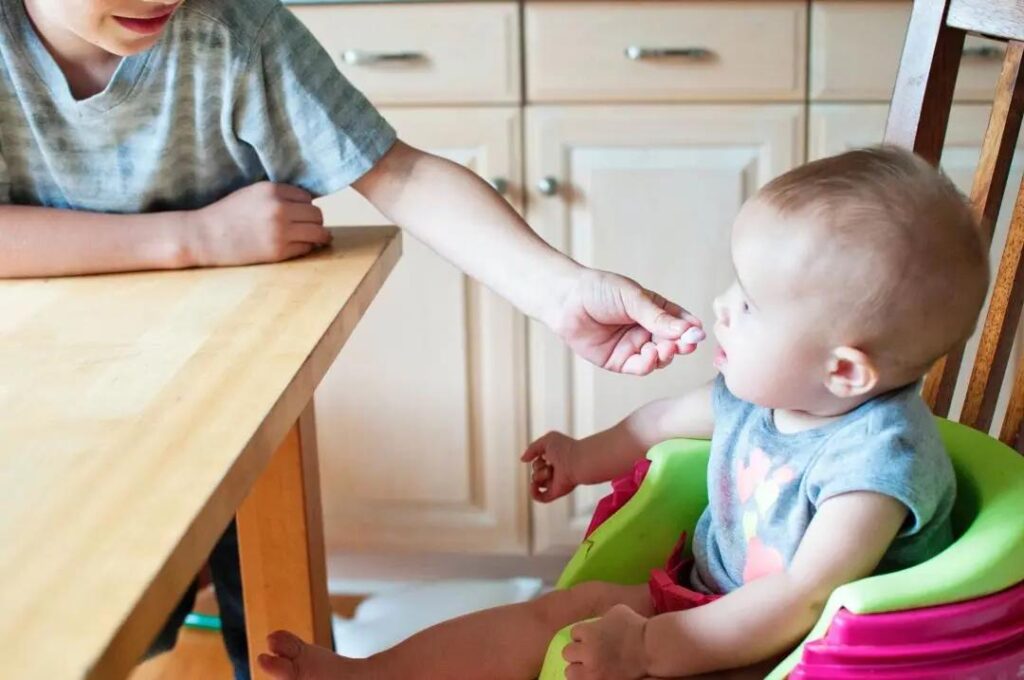Many parents lament, “It’s so frustrating! My child’s immunity is so weak, and they’re constantly sick. Hospital visits have become our routine, and it’s exhausting for both kids and adults.” Seeing your usually energetic little one become lethargic and unwell is heartbreaking for any parent. While every parent hopes for a child with a robust immune system, certain everyday parenting practices may unknowingly harm their health.
1. Overloading Your Child with Supplements
Some parents believe that supplements are the secret to optimal growth and health. Shelves lined with bottles and boxes—from domestic to imported products—seem irresistible. However, blindly feeding children nutritional supplements can strain their kidneys, disrupt metabolic balance, and even compromise their immune systems, making them more susceptible to illnesses.
What to do instead: Treat your child like a young sapling. Their best “nutrients” come from a balanced diet of proteins, grains, vegetables, and fruits. Avoid relying on commercial supplements unless specifically recommended by a doctor.

2. Misusing Probiotics
Probiotics have been heavily marketed as a miracle cure for gut health. Many parents believe they’re harmless and universally beneficial. While probiotics can suppress harmful bacteria and improve digestion, overuse can disrupt your child’s natural gut flora, ultimately weakening their immune system.
What to do instead: Use probiotics only when prescribed for specific conditions. Let your child’s gut bacteria develop naturally through a balanced diet and healthy lifestyle.

3. Rushing to Medicate at the First Sign of Illness
A mild fever or sniffle often sends parents scrambling for medicine to “nip the illness in the bud.” However, minor ailments like the common cold are typically self-limiting. Overmedicating not only fails to shorten recovery time but may also harm your child’s immune response.
What to do instead: For minor illnesses, allow the body’s natural defenses to work. Consult a doctor if symptoms worsen, but avoid unnecessary medication.

4. Overusing Disinfectants
A spotless home might seem ideal for a child’s health. Some parents obsessively clean with disinfectants to create a “bacteria-free” environment. However, exposure to everyday bacteria helps develop a robust immune system. Over-sanitization may leave your child’s body unprepared for the real world’s germs.
What to do instead: Maintain a clean but not sterile home. Allow your child to play outdoors and interact with their environment naturally.

5. Overfeeding Your Child
Many parents equate more food with better health. Overfeeding, especially late at night, can overburden a child’s digestive system, leading to imbalances and reduced immunity.
What to do instead: Focus on balanced meals and regular eating schedules. Quality trumps quantity when it comes to nutrition.

6. Overdressing for Fear of Cold
“There’s no cold like a mother’s perception of cold.” Parents often bundle children in extra layers, fearing they’ll catch a chill. Ironically, children in their growth phase tend to tolerate cold better than adults. Overdressing can make them uncomfortable and less adaptable to temperature changes.
What to do instead: Dress your child appropriately for the weather. Check their neck or back for warmth rather than piling on layers.

7. Keeping Windows Closed All Winter
Many families keep windows shut tight during colder months to retain heat. While this keeps the house warm, it also traps stale air and increases the concentration of harmful bacteria, potentially leading to respiratory issues.
What to do instead: Regularly ventilate your home, even in winter. Fresh air improves indoor air quality and strengthens your child’s respiratory health.

8. Restricting Movement and Outdoor Play
Some parents are overly protective, keeping children indoors to avoid injuries. However, lack of physical activity hinders immune development. Exercise stimulates metabolism, builds strength, and enhances immunity.
What to do instead: Encourage age-appropriate physical activity. For younger kids, this could mean tummy time or crawling. For older children, outdoor play and sports are excellent options.

9. Allowing Exposure to Secondhand Smoke
Secondhand smoke is one of the most harmful environmental exposures for children. It significantly increases their risk of respiratory infections, asthma, and other health issues.
What to do instead: Create a smoke-free home environment. If someone in the household smokes, insist they do so away from children and indoor spaces.

Conclusion
While parenting is a journey filled with love and good intentions, it’s crucial to recognize the habits that might be doing more harm than good. Small adjustments can go a long way in helping your child build a stronger immune system and enjoy better health.



















